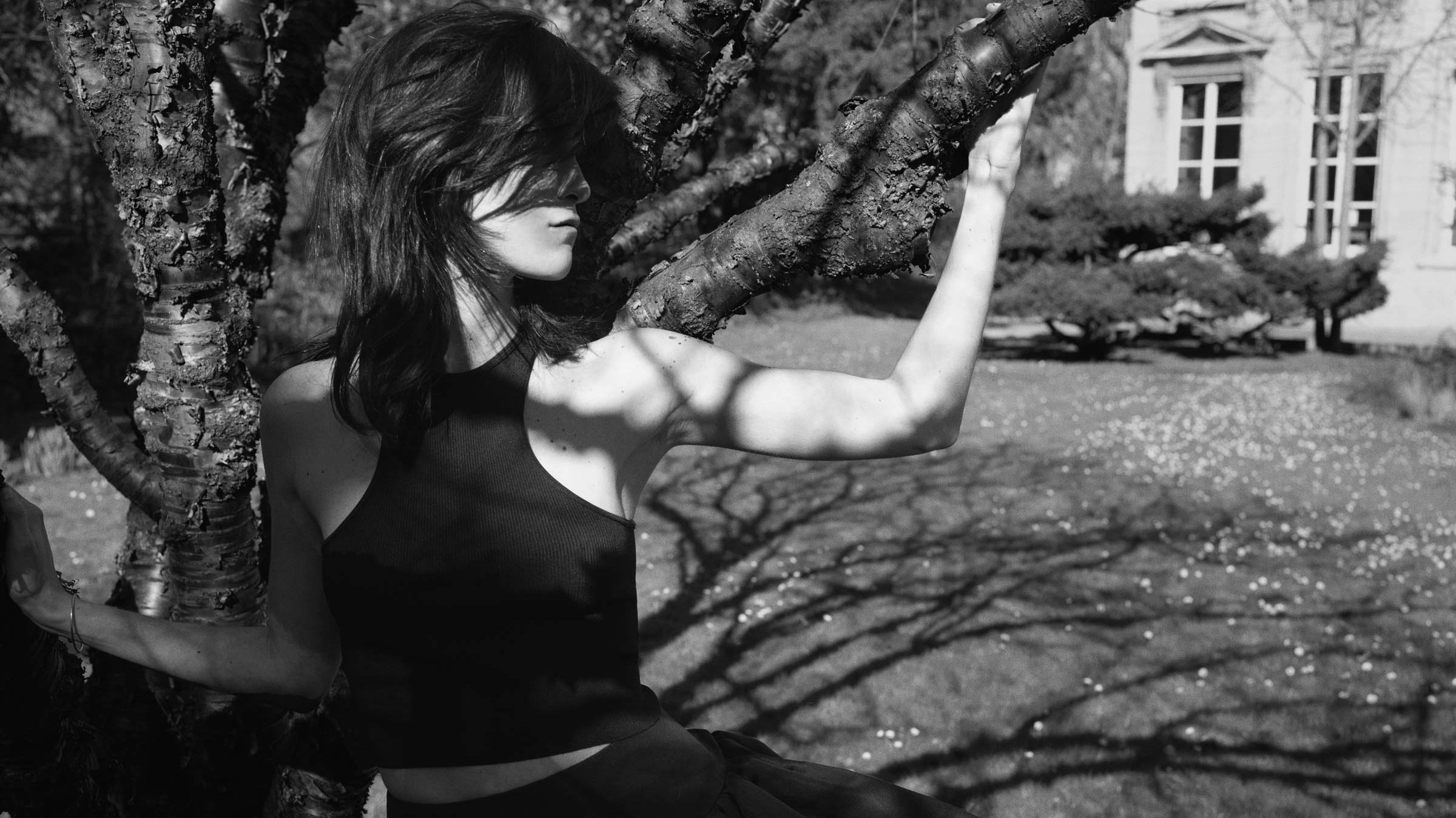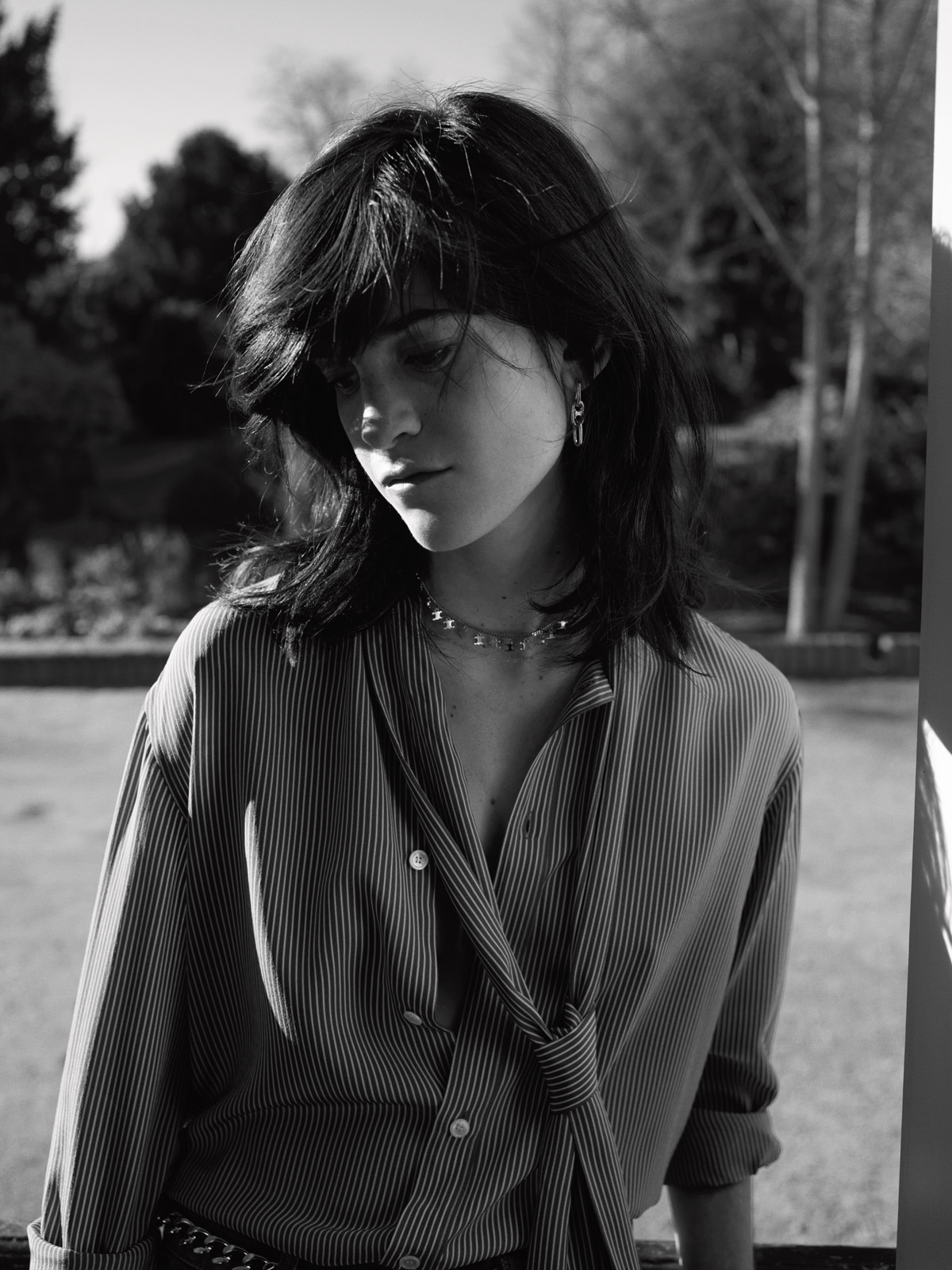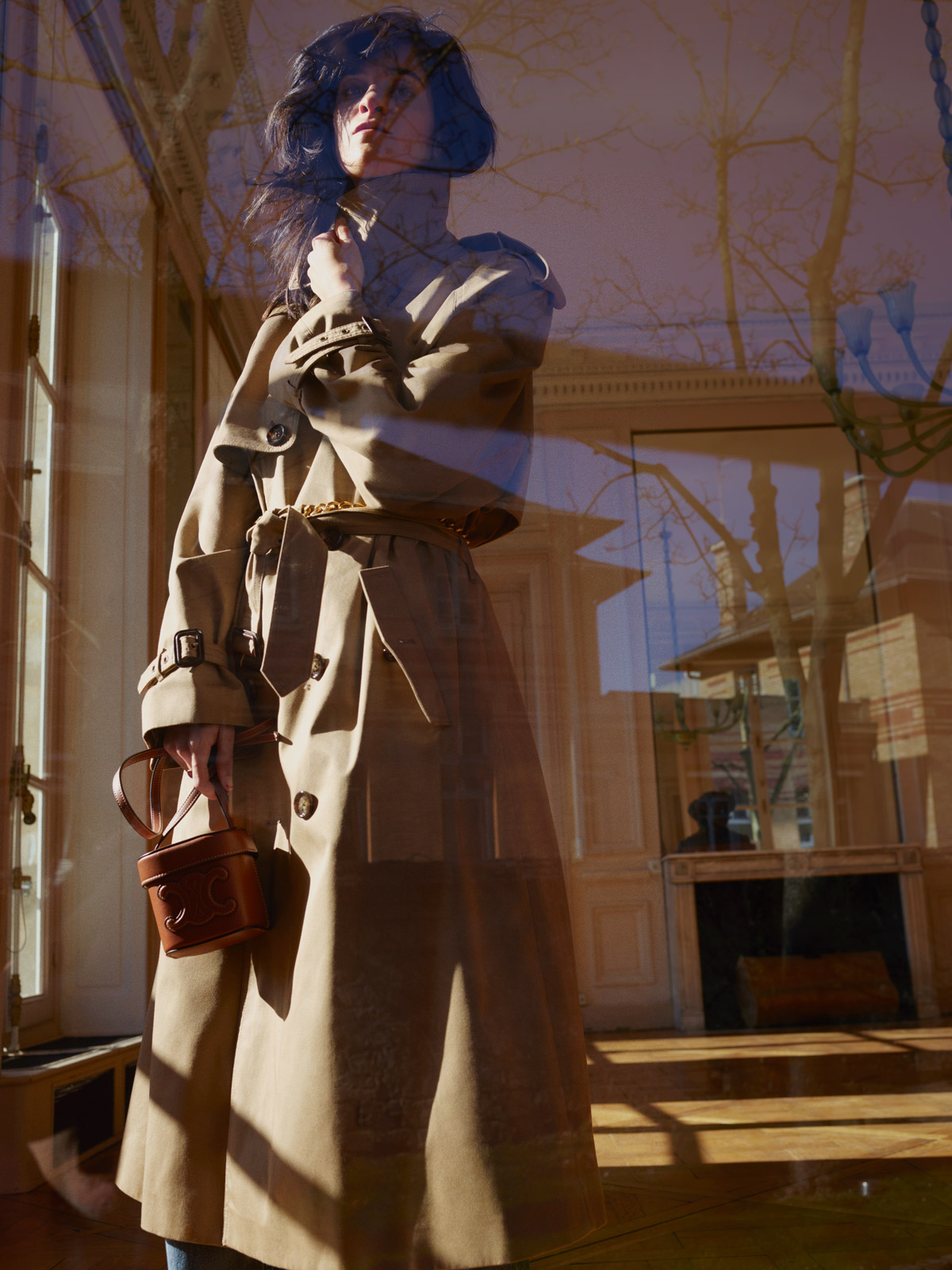For Document’s tenth anniversary, the filmmakers meet to discuss the enigma of adolescence and the search for the authentic self
The inebriating and merciless delirium of adolescence has long been a muse revisited by artists often past the living of it, perhaps in the hopes of resolution or release. But what of those who create from within the eye of the storm, synchronically observing and anatomizing their youth as it happens? Such was the experience of 22-year-old writer, director, and actress Suzanne Lindon and 30-year-old writer and director Lukas Dhont in their respective feature film debuts, both written in their teens, almost a decade apart from each other.
Lindon, the daughter of emblematic French actors Vincent Lindon and Sandrine Kiberlain, wrote her debut, 2020’s Spring Blossom, at the age of 15, directing and starring in the film at 18. Named to the Official Selection of the 2020 Cannes Film Festival, Spring Blossom follows a withdrawn 16-year-old girl (played by Lindon) who is contemplating the obstacles of an accelerated coming of age when she begins an unorthodox companionship with an older man. It reads as the raw, earnest diary of a teenage girl, partly because it was written as such.
“When I was writing my film, I was really aware that I was not writing a role for a young girl, nor [for] a woman. It was a part for someone who was just looking for who she was,” explains Lindon. “It’s so interesting to film that moment in a child or teenager’s life, because sometimes you don’t really know who you are or who you want to become, but you have to find [out] very, very quickly […]. I think it’s so beautiful to film the fact that someone can be totally lost and confused.”
Dhont wrote Girl at 18, directing the film at 26. Based on the true story of Nora Monsecour, a trans ballet dancer struggling with gender dysphoria, the film screened in the Un Certain Regard category at the 2018 Cannes Film Festival, winning the Caméra d’Or award for Best First Feature Film as well as the Queer Palm. For Dhont, exploring Monsecour’s inner conflicts allowed him to free himself from his own as he came into his queer identity.
“As a teenager, I was so uncomfortable with who I was. I was so often looking at myself from the perspective of others, because I thought my movements were too feminine or my voice was too feminine or too this or too that,” says Dhont. “I did start to write [Girl] at 18, but when I was in film school, I felt I was not ready to make this film. At the age of 18, I was not very confident about my sexuality and about being someone who doesn’t necessarily follow the norm or fit in. I directed Girl when I was 26 and, in those years I made a lot of progress, and I gained a lot of the confidence I needed to direct this film and to put it into the world, and then have the world react to it and be okay with all of that.”
The two met virtually for the first time—Lindon from the couch of her family home in Paris and Dhont from his apartment in Amsterdam, where he is in post-production for his second feature, Close—to discuss the enigma of adolescence, the desire for freedom, and the search for the authentic self.
“It’s so interesting to film that moment in a child or teenager’s life, because sometimes you don’t really know who you are or who you want to become, but you have to find [out] very, very quickly because everyone is asking you.”
Suzanne Lindon: I wanted to thank you, Lukas, because I’m your biggest fan. [Girl] is the film that made me want to make movies. I was a teenager when I saw it and it was the biggest, most important film of my teenage years.
Lukas Dhont: Oh my God, that’s too much honor! I watched your film recently and I was very honored that you wanted to have this conversation with me and that you found great inspiration and beauty in Girl. So I’m happy to get to meet you.
Suzanne: When Girl was out in France, I was 18. I remember the biggest decision I had to make was if I had to do my homework. I was doing my baccalauréate [exam] at the time, but I wanted to go to the movie theaters to go see your film.
I read something about the fact that you found an article in a newspaper about [Nora Monsecour] when you were 18, and started to imagine that your first feature would be this story. This was so inspiring for me because I started to write when I was 15, and I was the only teenager [I knew] to write something that could be a film. Discovering that you had the idea for your film when you were very young made me feel less lonely.
Lukas: That’s very nice to hear. So you were 15 when you started what would become Spring Blossom?
Suzanne: Yeah, I was writing it at the end of the school day. I would go to a café next to my high school. I was not really at ease with my friends, because I was not really okay with who I was at that time. I was not very confident, and I just wanted to be alone. I was writing it as if I were writing a diary.
Lukas: This amazes me. How old were you when you directed this film?
Suzanne: I was 18 when I started, and my 19th birthday was during the shoot.
Lukas: Writing a film, especially a film that feels quite personal and intimate to you, and directing it at 18—you have to radiate so much confidence, and at the same time be so vulnerable at such a precious age. How did you find the strength to do that?
Suzanne: I think the first reason was that I wanted to act and to play in movies, but I was very shy because my parents were doing it. In France, more than anywhere else, when you’re the daughter of [someone famous], you’re categorized very quickly. I wanted to feel very sure that I was working because of me and not because of my parents. I think that was the thing that made me write.
I was not very aware of what making a film [involved]. I was in high school, I had never studied cinema, we didn’t have a lot of money, and we had to shoot in three weeks—so I had the feeling that I was just doing something with my friends. I think the hard part of making this film was having authority while I was the youngest person on the team. I was, as you said, very vulnerable, but I tried to use this vulnerability as a strength. I thought that I had something to say, and it was so necessary for me to be myself without my parents or anybody else. I thought my film was the only way to do that.
Lukas: You really have succeeded with that. You made an incredibly personal and beautiful film at the age of 18.
Divya Bala: Well, Lukas, you wrote Girl at 18, didn’t you? So you have some experience being a young, prodigious talent!
Lukas: I did start to write it at 18, but when I was in film school, I felt I was not ready to make this film. At the age of 18, I was not very confident about my sexuality and about being someone who doesn’t necessarily follow the norm or fit in. I directed Girl when I was 26, and in those years I made a lot of progress, and I gained a lot of the confidence I needed to direct this film and to put it into the world, and then have the world react to it and be okay with all of that.
Suzanne: What I really love in your film is the conflict of the character. You don’t see what she’s going through [via] other people, you understand what she’s going through, and you can feel what she feels and how she thinks. When you’re 18, you’re very focused on what other people think about you, and in your film you’re just with Lara, the character, and you’re really focused on her. Her family, and especially her dad, is very supportive of her. So I think what’s interesting is that the only person who has to deal with who she wants to be is her.
Lukas: For us, that was really important. Every step of the way [the script] evolved more toward a film about the internal struggles of a character who we’re aware is seen as someone different. Someone who, to some people, should not exist. I said, ‘I’d really like this film to be about this character and her struggles and allow her to go past the judgments of the outside world and the way she looks at herself.’ It was important to give the film to this character and not to the characters around her.
Suzanne, I would really like to hear how you approach actors as a director. And then: How, when you act, do you let go of that role or not?
Suzanne: I love your question, because I was scared about that when I started to act in other people’s movies. In my film, I was very shy because it was my first time, and I was enjoying the fact that we were a good team and all the actors trusted me. I was very focused when I was the director, but I was very free and had fun when I acted with them. I had the feeling I was two people in one, the two roles were very different.
With actors, I’m never really a director with them. I’m always an actor with them. I love to talk to them as if I was going to act with them. The first desire I had was to act, so I think that, naturally, when I talk about cinema and the desire to film something, I talk about actors in the way I imagined someone could play [the role]. I was raised by my parents who are actors, but they never talked about [acting] as something different from another job. It wasn’t something rare or glamorous, it was just something that they needed to do to express themselves and be free. So I think the way I talk to the actors is to talk about freedom, and to try to understand at what point they’re going to feel free and comfortable to really enjoy what they have to do.
Have you ever acted in something?
Lukas: Sometimes in film school, we had to act in each other’s films and I saw myself on the screen, and that was that. It was a very cringey experience. When I saw myself on-screen, I was like, ‘This is not where I need to be.’
As a teenager, I was so uncomfortable with who I was. I was so often looking at myself from the perspective of others, because I thought my movements were too feminine or my voice was too feminine or too this or too that. Performance has always been a big part of my life. I felt like I was an ‘actor’ in my own life for a very, very long time, and so when I finally decided to stop acting—which is, of course, an ongoing process, because it’s something I’m unlearning—I also realized, because I was so self-aware for such a long time, and directing my own movements, that it would never work [as an actor]. That awareness prohibits me from being really free in front of the camera.
Suzanne: I think I saw something about a second film you were making.
Lukas: Yes, we’re finishing this film Close. It’s centered around two 13-year-old boys and it’s my second experience directing young people. Actually, the main part of this film—I was on the train and I had written the first lines, and there was this young boy next to me, talking with his friend. I was looking at him like, ‘Wow, his energy is incredible.’ We were far from casting, but I just started talking to him. Sometimes you read directors saying, ‘I met [my star] on the [train],’ and I was like, ‘This never happens.’ And then it happened to me! I asked him, ‘Are you interested in acting?’ and we got to know each other. From there, he came to the casting of the film and he became the lead. I love young people because they bring so much of themselves.
Suzanne: They’re very pure, and there’s this innocence which is actually the most beautiful gift to film because everything is so real. They’re just doing what they feel. When I was writing my film, I was really aware that I was not writing a role for a young girl nor [for] a woman. It was a part for someone who was just looking for who she was. I think it’s so interesting to film that moment in a child or teenager’s life, because sometimes you don’t really know who you are or who you want to become, but you have to find [out] very, very quickly because everyone is asking you. I think it’s so beautiful to film the fact that someone can be totally lost and confused.
Did you think that it was easy to write for the second time or was it very complicated?
“Performance has always been a big part of my life. I felt like I was an ‘actor’ in my own life for a very, very long time, and so when I finally decided to stop acting—which is, of course, an ongoing process, because it’s something I’m unlearning.”
Lukas: Writing a second film was complicated. With the first one, it was intuitive and I wanted it so deeply and intensely. I still do, but with the second one, I felt there was this awareness of everything around me and expectations from myself and from others. There were days when that completely took me over and I was like, ‘This is not good enough, you’re going to let yourself down.’ So I felt I was much less in the present.
I had this moment where I had to change something, to really go to my core and my pure [intention]. I went to visit my mom and spend a few days there, and all of a sudden I felt like a child again. I told her how I was struggling, and asked why I was not enjoying myself. She was like, ‘For me, there’s no doubt. You are here to make the films you’re going to make. I know that I brought you into this world for you to talk about these things that you want to talk about.’ It’s not that all of a sudden, immediately, things went better, but—
Suzanne: It meant something and it changed something?
Lukas: Yeah. It made me return to the experience of being that child with the camera again, filming my mom—going back to something very pure.
Suzanne: I have the feeling that the second time is the real first time, you know? The second [film] is the way you’re going to affirm who you really are and what you really need to talk about and your identity as a director. I think you can see everything about a director’s identity in their first two films. The first is like a first love, in a way. You’re doing everything one hundred percent, and you’re very free. The second is like being married. You have to be sure and you have to think about it.
Lukas: I think this eagerness is such a beautiful quality about being a teenager, being eager to share and to prove and to show. What I really loved about your film is that I felt that you were sharing something very personal with us. I wonder, did you write it like a stream of consciousness and then find all the elements that were in it? Or were you inspired by references by other narrators or storytellers of that age?
Suzanne: I was just writing it really as a diary, but as something very naïve. So it became a treatment—no dialogue, just a short story. I really liked that form, because I was describing every little gesture or idea, as if I was writing a book.
I had to present a version with dialogue, a much more classic ‘script.’ But I knew this was not really my film. Once on set, the treatment version was very intuitive for me. It was something much more personal and deep. So when I read it back on set, I remembered every line I wrote and how I felt when I wrote it. It helped me to honor every little intention I had. I felt very free to create something with the actors. It helped me because I was imagining something very precisely, but I was also ready to change everything.
See the full fashion portfolio here.
Hair Stéphane Lancien at Callisté. Make-up Marion Robine at Callisté. Manicure Marieke Bouillette at Callisté. Photo Assistants Virgile Biechy, Nicolas Darde. Digital Operator Nathan Zaoui at Sheriff. Stylist Assistant Salomé Rouquet. Hair Assistant Julian Sapin. Production Manager Céline Guillerm at Octopix. Production Assistants Alexis Linval, Pierre Sénéchal. Retouching Andy Greig at Love Retouch. Thanks to Madeleine Kiersztan.











